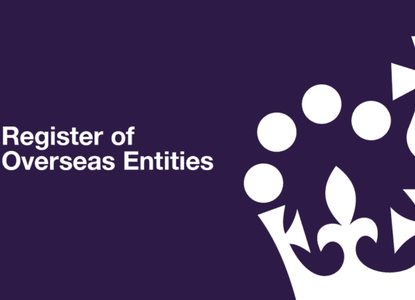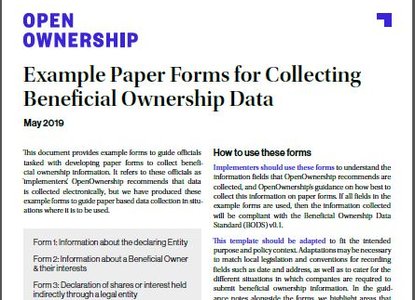Reflections on the British Virgin Islands’ proposed framework for beneficial ownership disclosure

Photo by Dietmar Lichota on Unsplash.
Between 17 January and 28 February 2025, the British Virgin Islands (BVI) government ran a public consultation that sought feedback on the rights of access to its beneficial ownership (BO) register. The draft policy proposes “granting access to BO information by eligible categories with a demonstrable ‘legitimate interest’ under specific circumstances”, along with measures designed to protect at-risk individuals within this framework. BVI has made commitments to the United Kingdom (UK) Parliament as a British Overseas Territory. In the consultation document, it states the BVI government’s commitment to enhancing transparency and allowing greater access to BO information, while also considering international best practices, such as the Sixth Anti-Money Laundering/Counter Financing of Terrorism Directive (AMLD6) from the European Parliament.
In order to establish a framework that fulfills the BVI government’s commitments, the proposed policy should be amended and strengthened in several areas, outlined in detail below.
1. Definition of legitimate interest and application process: In the proposed policy, it appears legitimate interest can only be claimed by parties that are not obliged entities if there are active criminal or regulatory proceedings related to the entity in question. This restrictive approach contrasts with the broader definitions seen in the 2024 European Union (EU) anti-money laundering (AML) package. The EU’s definition is based on a person’s profession or focus, whereas the BVI’s is based on a specific set of circumstances. These circumstances, such as the entity or beneficial owner being involved in criminal or regulatory proceedings, exclude many AML-related use cases of BO information. This, in combination with the proposed requirement to provide the name of the beneficial owner in access applications, means that the register cannot be used to identify new suspects and cases of wrong-doing. To increase the effectiveness of the reforms, the BVI government could include providing a wider range of conditions under which legitimate interest may be claimed as well as reducing the information and evidence required in applications.
2. Eligible categories for access: The categories of parties allowed to access the BO register – such as financial institutions, designated non-financial businesses and professions, registered non-profit organisations (NPOs), and media personnel – all play a role in maintaining a robust AML and combating the financing of terrorism (CFT) regime. However, the requirement that NPOs must be registered and subject to AML/CFT obligations in the BVI raises questions about eligibility and operational nuances. AMLD6 does not include a geographic restriction. As civil society organisations and academic institutions are mentioned separately, this merits clarifying. Additionally, these categories are required to be involved in "bona fide research or advocacy", but the criteria for determining what constitutes "bona fide" are not clear.
3. Exemptions for beneficial owners: The circumstances under which beneficial owners can apply for exemptions – such as disproportionate risk, or being a minor or legally incapacitated person – warrant careful consideration. For instance, incidents of naming minors as beneficial owners, seen in cases of oligarchs in Russia, underscore the need for judicious oversight.
4. Notification process for beneficial owners: The current provision for notifying beneficial owners of access requests (including the name of the requesting person) and allowing objections within five business days carries significant risks, both for tipping-off and for the safety of the requester. In line with the EU’s General Data Protection Regulation, Article 12 of AMLD6 requires central registers to maintain records of individuals accessing BO information. It includes provisions for beneficial owners to request this information. However, it also stipulates that such disclosure must not reveal the identities of those consulting the register who are acting for the purpose of journalism or working for civil society organisations, including non-governmental organisations and academia. An additional issue that may affect this process is that according to the FATF’s mutual evaluation, the BVI’s company registrar is staffed by just nine people who are responsible for processing 30,000 incorporations each year. The proposed approach would place a significant administrative burden on the registrar.
5. Information provided: For many use cases of BO information, the nature and extent of the information provided is crucial. As opposed to the EU’s approach, successful applicants from the media or civil society will only be provided with information about a single entity, rather than generalised access to information contained in the register. In addition, it is unclear whether this information will include details like the start date of the BO interest or mechanisms for enquiring about historical ownership details, which are critical to investigations. Additionally, restricting information to only those holding 25% or more shareholding or control is a potential loophole, as other interests would not be covered. It is also not clear, for example, if more than 25% of a company’s shares are held in a trust, whether information about the parties to the trust would be available. The lack of historical information is particularly problematic given the five-day appeals process. If access requests do not specify a particular date to ascertain past ownership, they lack utility for investigations, as current beneficial owners may be able to alter their status or transfer ownership within that time frame.
By refining these elements and considering contributions by other interested parties, the BVI government will be making their framework more effective and better aligned with global standards.
Related articles and publications
Publication type
Blog post
Country focus
British Virgin Islands
Sections
Implementation
Open Ownership Principles
Central register,
Access


